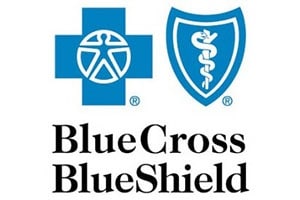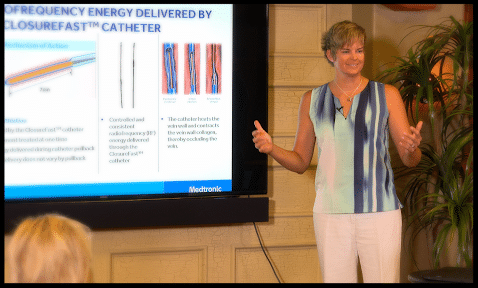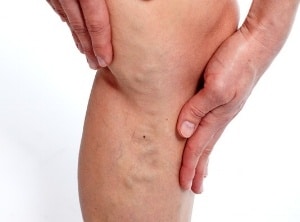
Does Blue Cross Blue Shield Cover Varicose Vein Treatment?
VARICOSE VEINS, VENOUS INSUFFICIENCY AND LEG ULCER TREATMENTS
Insurance coverage is always dependent upon benefit eligibility, as outlined in your specific benefit plan. Some employers have chosen not to cover varicose vein treatment specifically, so be sure and check with your human resources department or call the toll-free number on the back of your insurance card.
BCBS typically will cover if medically necessary
For the most part, as long as your situation meets Blue Cross Blue Shield’s definition of "medical necessity," then your treatment will be covered and paid according to your plan benefits. BCBS provides contracted providers with a comprehensive 17-page report that explains how a patient meets criteria. The measures and conditions they require are very straightforward. During your examination, duplex ultrasound, and consultation with Dr. Jilanne Rose, she will be able to determine if you meet the standards for BCBS insurance coverage.
If you have not sought treatment before and your symptoms do not significantly interfere with your activities of daily living, Jilanne will most likely recommend conservative treatment for at least 3 months, to see if your symptoms improve without the need for more invasive options. If you are like most of our patients, you’ve been suffering for many months or years and have had numerous rounds of conservative treatment…to no avail. In this case, it’s very likely you will meet the treatment criteria at your initial visit and we can proceed with RFA, EVLT, Verithena, and/or sclerotherapy immediately.
Prior authorization
Our staff including Michella, Beth, or Lucy will call BCBS of Arizona and request “prior authorization” as well as obtain benefits. This way you know how much you will owe before any treatment is done and you can be assured the insurance has “authorized” the treatment as well. It is our goal to make sure the insurance companies provide the level of benefit coverage that you and/or your employer pay for on a monthly basis, as well as make a painless of a process for you. You can also contact our office to discuss varicose veins treatment costs if your insurance will not cover EVLT, RFA, ClariVein, or VenaSeal.
To find out if you are at risk for CVI, or any other venous disease of the lower limb, download and fill out this assessment.
Want to speak with someone right away? It's really easy to talk to Dr. Jilanne Rose. Just call the office at (480) 454-5562, fill out this form, or email us at info@advancedveinaz.com to get a conversation started about your symptoms and whether vein treatment may be needed.
Is there anything worse than itchy varicose veins? Maybe, but itchy veins remains high on the list of issues we would love to resolve before they drive us crazy. If you are experiencing itching around your varicose veins, it could be a message from your body that it is time to have your veins checked…
Read MoreThe full story on Chronic Venous Insufficiency, what it is and how to treat it. A video presentation by Jilanne Rose, DNP-C, Clinical Director. Run Time 24:46. TRANSCRIPT What’s the Difference Between Veins and Arteries? When we talk about vascular health and vascular disease most people think about arteries. When we talk about the…
Read MoreA group of Gilbert Arizona Residents concerned about Chronic Venous Insufficiency gathered on Saturday July 16th for an interactive discussion on CVI symptoms, causes and treatments. Chronic Venous Insufficiency, Venous Reflux Disease and Varicose Veins affect over 30 million American men and women. Unfortunately, many do not get treated as they believe varicose veins are…
Read MoreCan Chronic Venous Insufficiency (CVI) be reversed? Unfortunately the short answer to this question is no; but CVI can be treated with minimally invasive procedures which can reduce symptoms and improve quality of life tremendously! Chronic Vein Insufficiency Causes In order to understand why venous insufficiency or peripheral venous insufficiency cannot be reversed, we must…
Read MoreWhat can you do to treat bleeding varicose vein and spider veins? First and foremost, don’t panic. Although the visual effect of a ruptured varicose vein or bleeding vein can be alarming, there are some simple things that can be done to get the bleeding to stop. If you can reach the area that is…
Read MoreWhy are varicose veins painful? The discomfort associated with varicose veins is caused by a combination of factors. When veins are weak, the blood which is supposed to return to the heart in a timely fashion, settles and pools in the superficial vein system. This pooling of blood worsens when patients stand or sit in…
Read MoreEndovenous Ablation Definition Taken literally, endovenous ablation is the removal of a vein from within. ‘Endo’ means internal or inside, ‘venous’ refers to a vein, and ablation is to ‘remove’. In the instance of veins, it is no longer necessary to physically remove a vein from the leg (vein stripping) to improve symptoms or the…
Read MoreThe newest procedure for the treatment of varicose veins was approved by the FDA about two years ago. It is what has been termed a non-tumescent non-thermal therapy. What this means is that it does not require a lot of numbing medicine to complete, and it does not use a heating element to close or…
Read MoreWhat is the best treatment for varicose veins? No varicose vein is the same; no person’s symptoms are the same; and so the best procedure for varicose veins is not always the same. The treatments associated with vein disease are based on a patient’s symptoms, vein size, location, contributing conditions, and ultrasound findings. Different…
Read More

